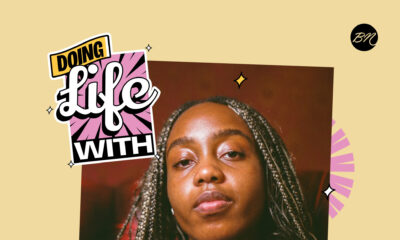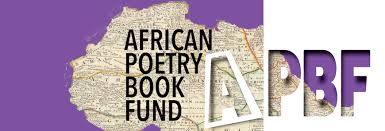Features
Read About Rasaq Malik Gbolahan’s Poetry Journey in Today’s “Doing Life With…”
Success to me is when I create poems, when I put my life in pieces that travel to places I have never visited, and when people approach these poems to find light, hope, love, and renewal.
Doing Life With… is a BellaNaija Features series that showcases how people live, work, travel, care for their families and… everything in between. We are documenting the lives of all people and ensuring everyone is well-represented at BN.
Did you miss our conversation with Oyinlomo Barakat Quadre? You can catch up here.
This week, we’re doing life with Rasaq Malik Gbolahan, one of Nigeria’s finest poets, and cofounder of Àtẹ́lẹwọ́, the first digital journal devoted to publishing work written in the Yorùbá language. Rasaq is the author of the poetry chapbooks Home In This Land, selected for Chapbook Box edited by Kwame Dawes and Chris Abani, and The Other Names of Grief, published by Konya Shamsrumi. He was shortlisted for the Brunel International African Poetry Prize in 2017. He was a finalist for Sillerman’s First Book for African Poets in 2018. Enjoy!
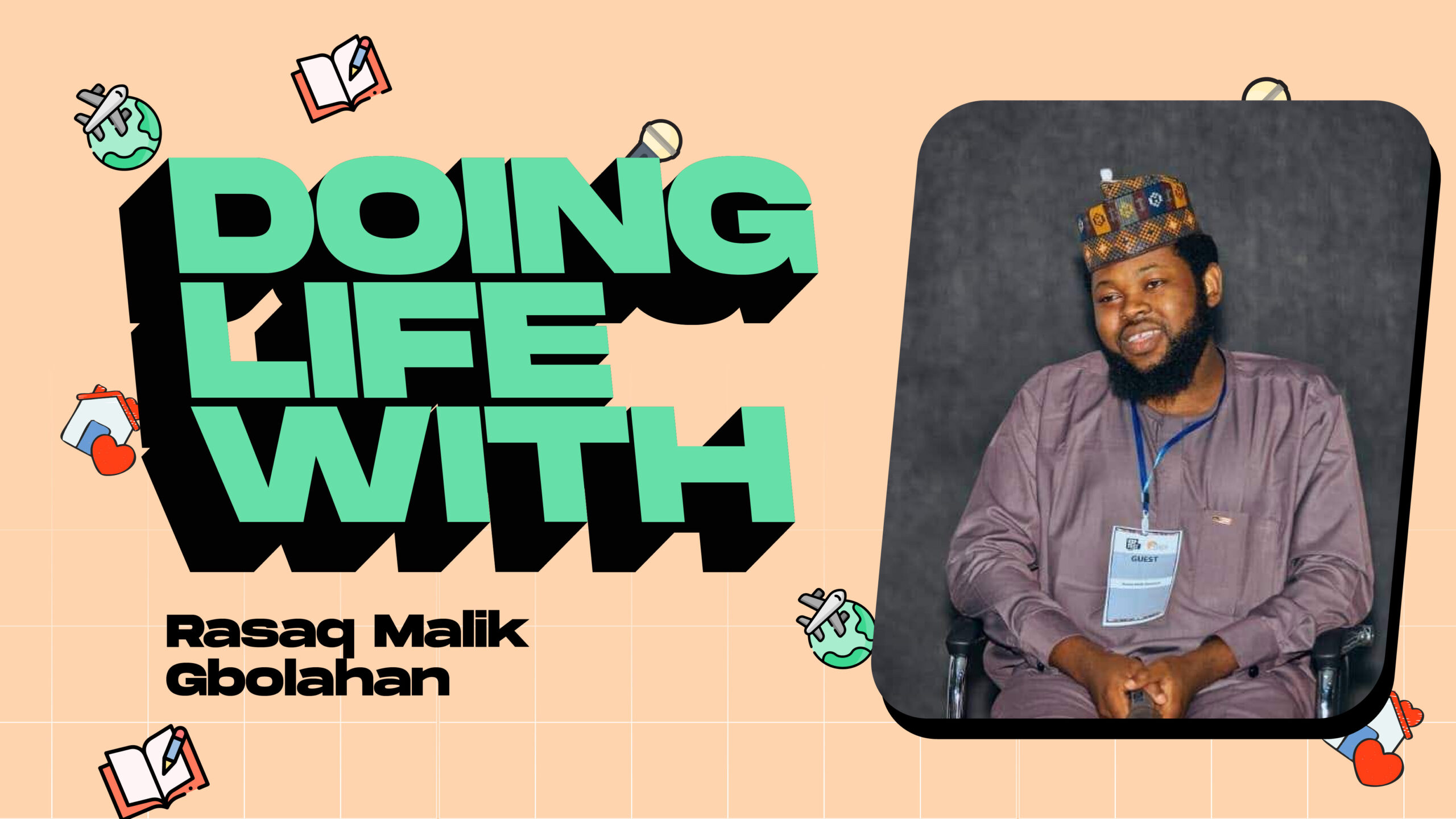
Hey Rasaq. How you are doing today?
Hello. I am doing fine.
Great! Give me a peep into your background and what part of your childhood influenced who you are today
I grew up in Iseyin. My childhood years were characterised by my mother’s passionate telling of stories that mapped my journey through the expansive world of the Yoruba people. My mother grew up in Igbo-Ora, and her father, an Alhaji and the Arowosadini of Igbo-Ora land was a man of the people. Growing up, my mother immersed herself in the reading of Yoruba literature, and this inspired me to read too. Even now, she still returns to some of the books she read in the past. Through her unrivalled zeal for reading and telling these important cultural stories, I felt motivated. In school, my teachers admired the way I read Yoruba texts in class. I remember Mr. Omoni, my Yoruba teacher in JSS 2, praising me in the presence of other students. My late English teacher, Mr. Hamzat motivated me to excel in English class. He would always ask questions in class, and I always tried to answer. There was a time when Baba Adebayo, a former principal, taught us Literature, and we enjoyed it even when he was tough on us. After Baba, Aunty Tosin taught us Literature. She played an indelible role in simplifying poetry for us. My zeal for poetry started in that class full of students reading poems by Kofi Awoonor, Andrew Marvel, John Milton, Timothy Wangusa, D.H. Lawrence, and others. Everything happened in Iseyin. That’s why it is inescapable to feature the town’s name in my narrative as a writer.
So poetry happened and started in Iseyin?
Yes. Yes.
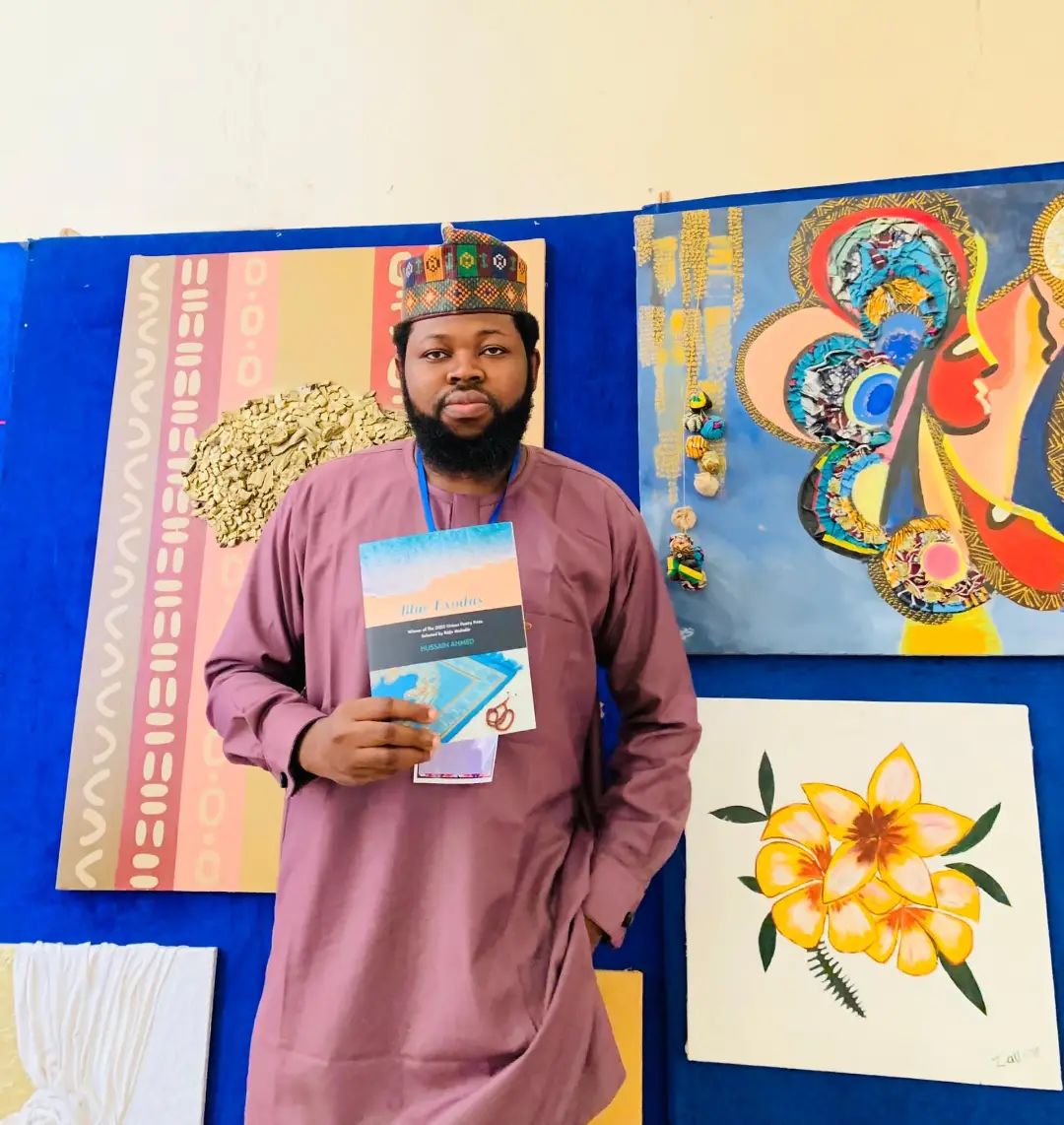
So can you mention some early books that built you as a writer?
I was fortunate to encounter literary texts that grounded me in poetry. In my literature class, we engaged poems like Kofi Awoonor’s “Songs of Sorrow”, Timothy Wangusa’s “A Taxi Driver on His Death”, David Rubadiri’s “An African Thunderstorm”, and John Milton’s “On His Blindness”. It was after reading these poems that I wrote a poem for the late human rights activist, Gani Fawehinmi. I never thought I could write something, but I did and I felt fulfilled. Even when I didn’t have an idea of the literary world beyond my reading of these poems, I still went ahead and celebrated my little win. That event spurred me, set the fire burning, while my undergraduate years at the University of Ibadan tended to the fire. I read voraciously at the university. Poetry unlocked the door of hope to me as I read books that gifted me the light to walk, to reach my dreams. I read poetry collections that include Niyi Osundare’s “Village Voices”, Sola Osofisan’s “Darksongs”, Akeem Lasisi’s “Night of My Flight”, Jumoke Verissimo’s “I am Memory”, and others. These books contributed significantly to my life as a beginner poet.
What moments made you believe you wanted to be a poet?
In 2017, I was shortlisted for the Brunel International African Poetry Prize. This happened after six years of submitting for the prize. As a result of being on the shortlist, APBF published my poetry chapbook, “Home In This Land” in 2018. Edited by Kwame Dawes and Chris Abani, ABPF has been cardinal to the promotion of African poets. When my manuscript was accepted, Kwame Dawes edited my poems, and he is a meticulous editor. The post-editorial stage was refreshing. My poems were revamped, and what I didn’t pay attention to became important to the possibilities in the poems. I learnt from what Kwame Dawes did in editing my poems that, when I write now, I pay keen attention to the open window of words, and how I can remove or add lines. I don’t rush my poems. I spend weeks/months on editing. I can’t fail to remember that doing the work matters, and it is always the one thing that matters. Also, I met great people through poetry. Being an active netizen, I have posted more poems online than I count. I started sharing my poems on Facebook in 2011. This is 2024, and I never stop sharing poems.
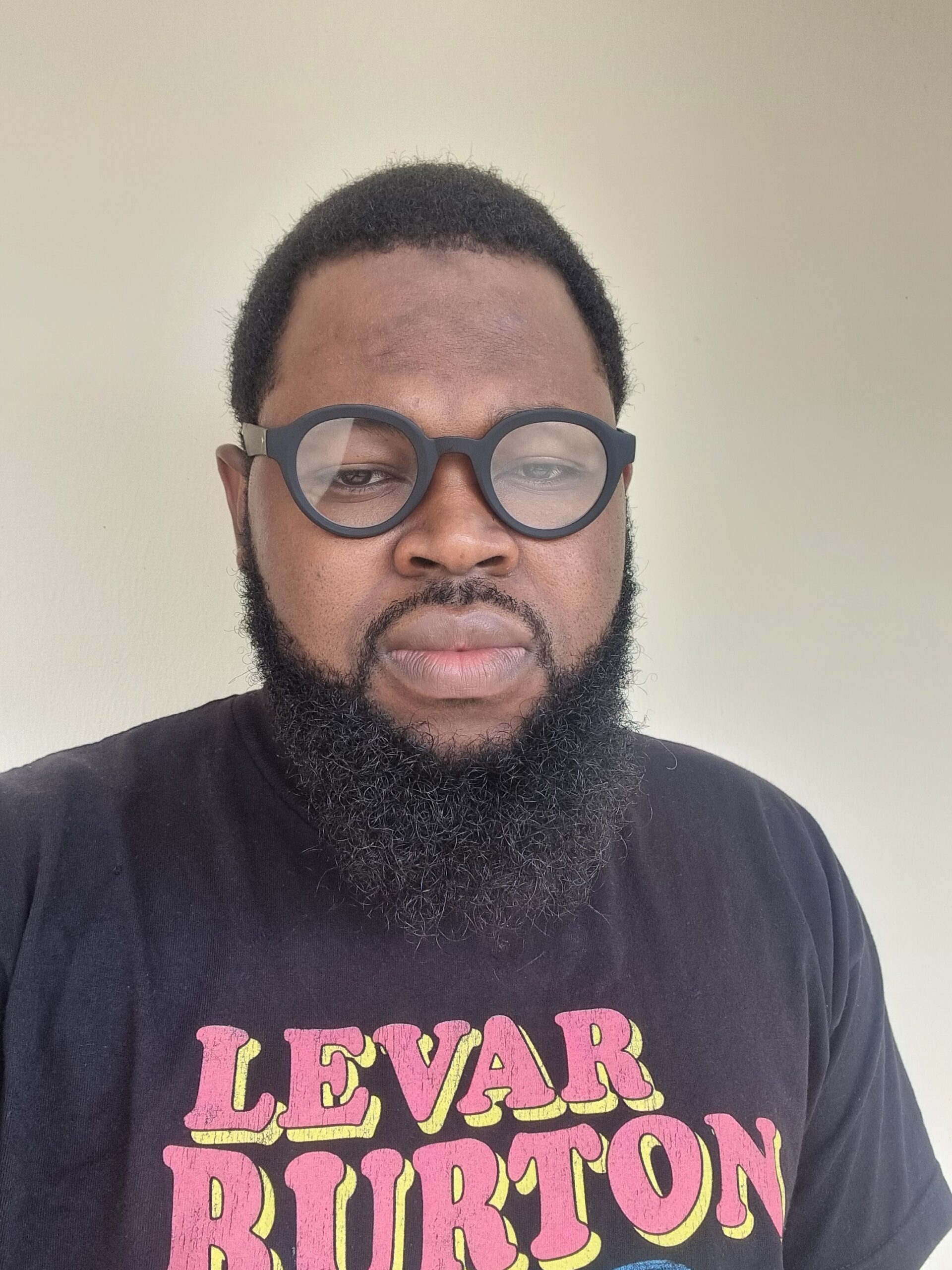
What is that thought about Nigerian literature, as it is often discussed today, that you wish to talk about?
You know, there has been a surge in the number of young Nigerian writers doing the work in recent years. The internet is a marketplace where we all meet and create. Nigerian writers are getting published everywhere. In Nigeria, literary festivals are happening annually. There are book clubs. There is the Ebedi Writers’ Residency founded by Wale Okediran. Imodoye Writers’ Residency is in Ilorin. Nigerian writers are doing MFA abroad. It’s delightful to experience. I have always claimed that the future of Nigerian literature is bright. There are enough testimonies already. Everywhere is filled with our work, our footprints. The growth is tremendous, and I can’t wait for what the years ahead will bring.
Do you think we have more poets and fiction writers in Nigeria than CNF writers?
I think it just depends on what people choose to write. I mean, there is no scarcity of writers in any of these genres. It’s a beautiful thing.
True. Given your years of writing, what would you say success means to you?
Over the years, people have engaged my poems in manifold ways. This is a delight – that somewhere, people are reading my poems, saying something about them. Thus, success to me is when I create poems, when I put my life in pieces that travel to places I have never visited, and when people approach these poems to find light, hope, love, and renewal.
It’s a beautiful feeling when your work travels beyond you
It’s a delightful feeling.
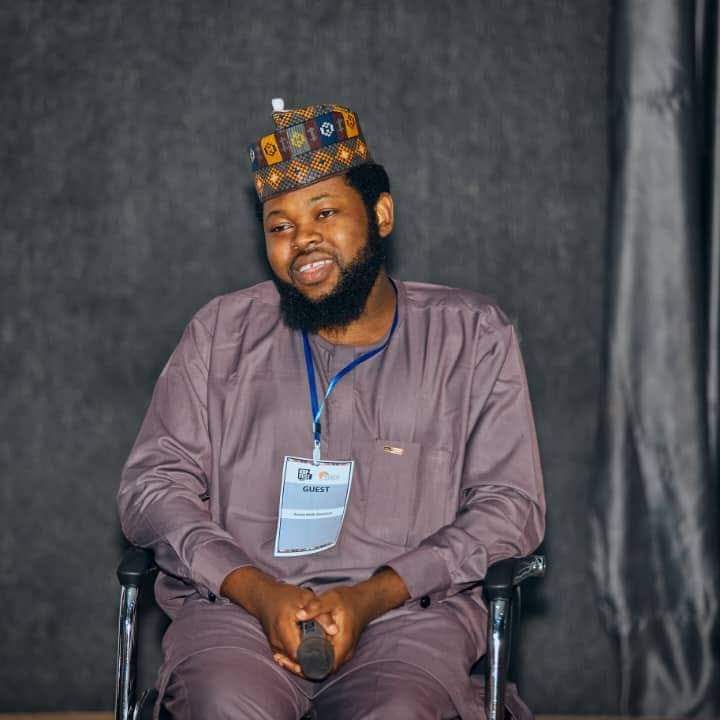
So how does your day go?
I pray. I prepare for the day. I go out with poetry books in my bag. I teach. I teach my students how to write, and how to engage other writers’ works. I tell them how beautiful the world is with all the creative pieces around us. I watch them write, bloom, and survive. I return home to write. I spend hours editing and looking through each line.
You always carry poetry books everywhere?
I mean, poetry is a part of me.
Is there a skill or hobby you picked up in the past year and enjoy?
None. Being a creative writer, I hardly find time for other things. I spend more time searching for new books to buy and read while I also return to books that I love.
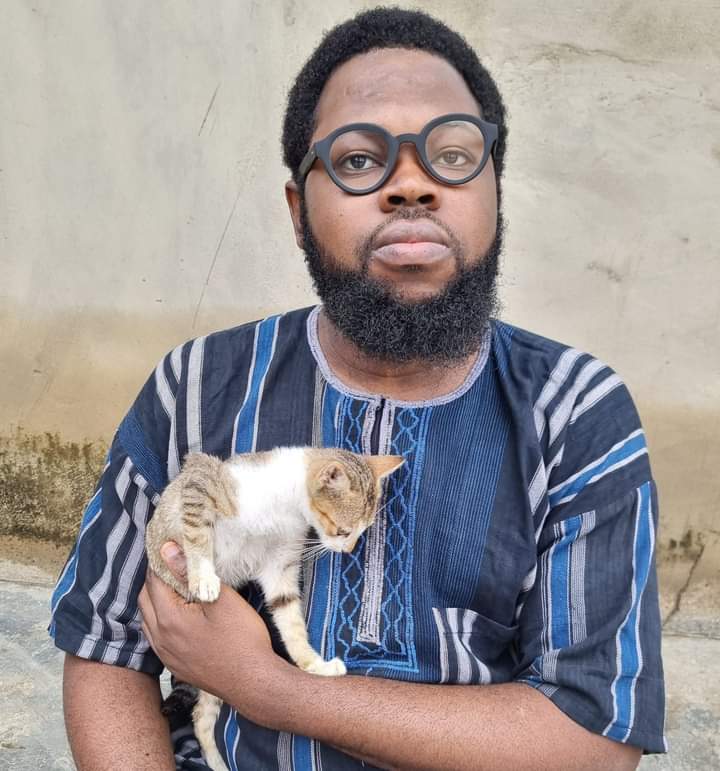
One crazy thing you’d do when no one is watching?
Reading. Writing. I don’t think both are crazy things.
Haha, you’re right. They are not crazy. If you were given a grant of $1 million to do whatever you like today, tell us how you’d spend it
Creating a foundation for the needy. It has always been my dream. People need help. Children in the hospitals. Parents struggling to feed their children. People dying. War everywhere. How can I help? Yes, if I have that grant, I will help the needy.
Thank you for being on Doing Life With…, Rasaq Malik
Thank you for having me.
__
Many thanks to Rasaq Malik Gbọ́láhàn for having this conversation with us and answering all our questions – and swiftly too, we must add.
Do you love this content, have any feedback for us or want to be a BellaNaija Features contributor? We’d love to read from you. Shoot us an email: [email protected]. Join us next time for the next episode!


